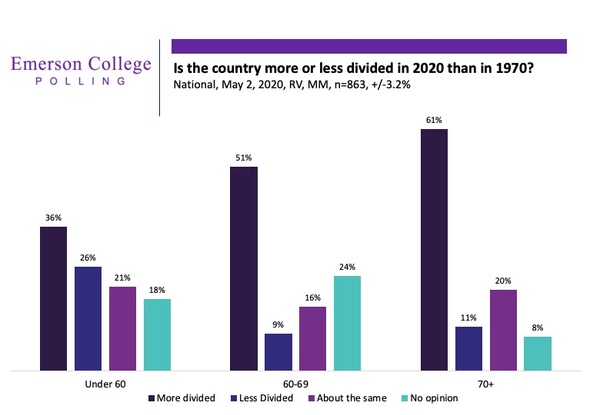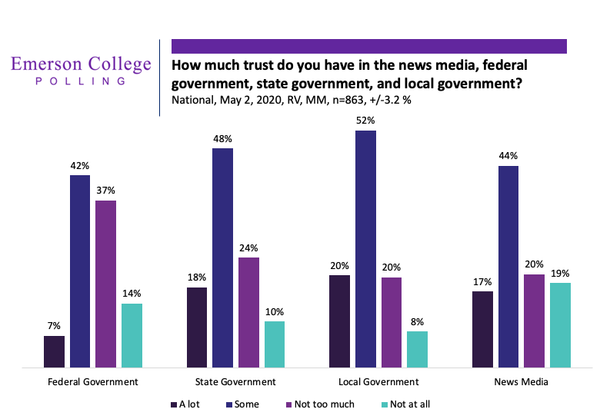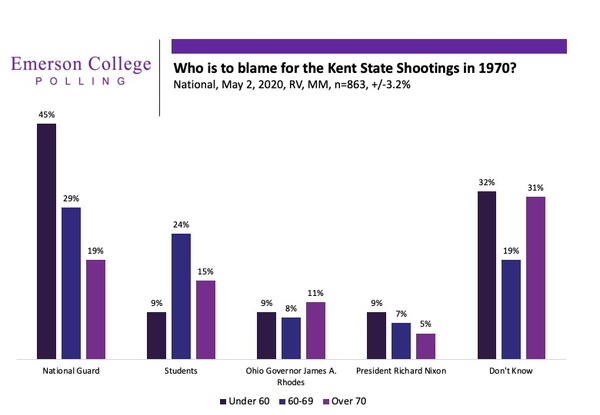In 1970, The President's Commission on Campus Unrest concluded that the shootings at Kent State occurred in “the most divisive time in America since the Civil War.” When asked about the current division in America in 2020, the plurality of Americans (41%) said the country is more divided now than in 1970; 22% said it is less divided now than it was in 1970. Twenty-percent (20%) said it is about the same, and 17% had no opinion on this.
The majority (61%) of those aged over 70 were the most likely to say that America in 2020 is more divided than 1970, compared to 32% of those aged 30-44 who say it is less divided now than it was in 1970.
“That we are more divided today than after the shootings at Kent State reflects, especially in the wake of the pandemic, reflects there are critical and immediate challenges for leaders at all levels of American society, as was the case in 1970,” said Dr. Gregory Payne, Chairperson, Communication Studies and expert on Kent State shootings.
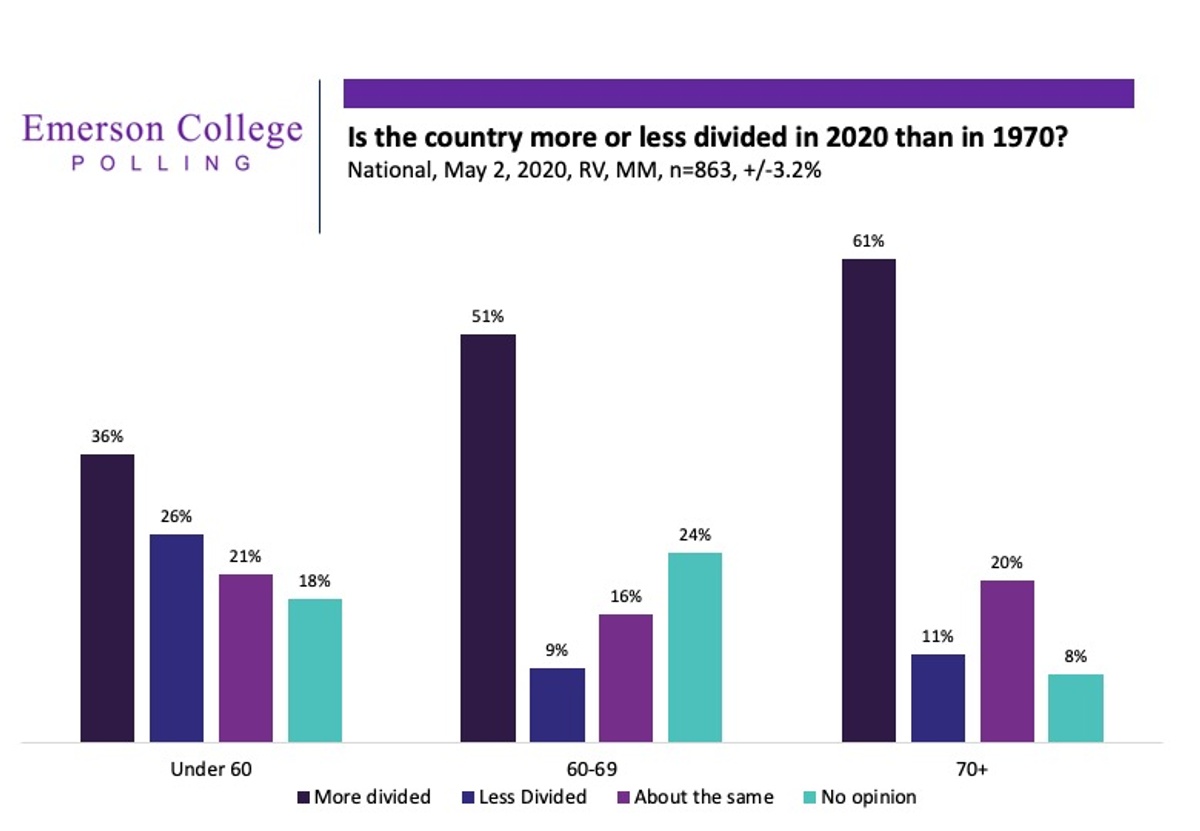
In assessing blame for the Kent State shootings, 36% believe the National Guard was responsible, 13% said the students were responsible, 9% said Ohio Governor James A. Rhodes was responsible, and 8% hold President Richard Nixon responsible. Among those under 60, 45% think the National Guard was responsible, as compared to 23% over 60 who hold the Guard responsible. Among those over 60, 19% think students were responsible, and 26% do not know.
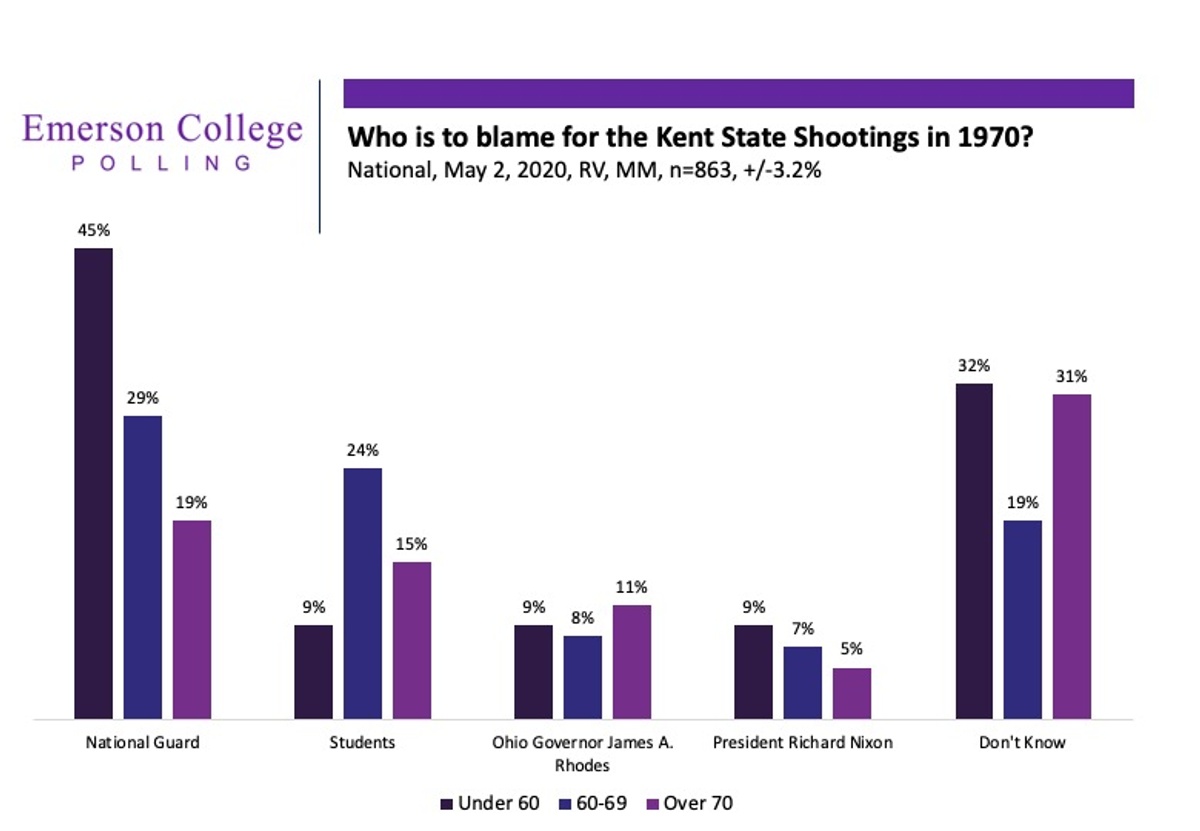
Dr. Gregory Payne, Chairperson, Communication Studies, an expert on Kent State shootings points out, “In contrast to polls in 1970 that approved of the Guards’ actions at Kent State, 50 years later the consensus, more so among those young, is in line with the President’s Commission on Campus Unrest that the shootings were “unwarranted, inexcusable and unnecessary.”
Among those who had heard of the Kent State shootings on May 4, 1970, 36% said they had watched videos on YouTube about the event; 25% had watched a movie or attended a play about the shootings, 21% had read a book, and 16% had completed a school assignment on the Kent State shooting.
Respondents were asked how much trust they have in several institutions in the country: the news media, the federal government, state government, and local government. The plurality of respondents, 44%, trust the news media somewhat, while 21% do not have much trust. Nineteen-percent (19%) have no trust at all, as compared to 17% who trust the news media a lot. Forty-two percent (42%) trust the federal government some, 37% trust the federal government not too much, 14% said not at all, and 7% have a lot of trust in the federal government. The state government had higher trust than the federal government among those polled: 18% said they trust their state government a lot, 48% said they trust their state government some, 24% said they trust their state government not too much, and 10% have no trust at all in state government. Local government is the most trusted: 20% said they trust their local government a lot, 52% trust them some, 20% said not too much, and 8% said not at all.
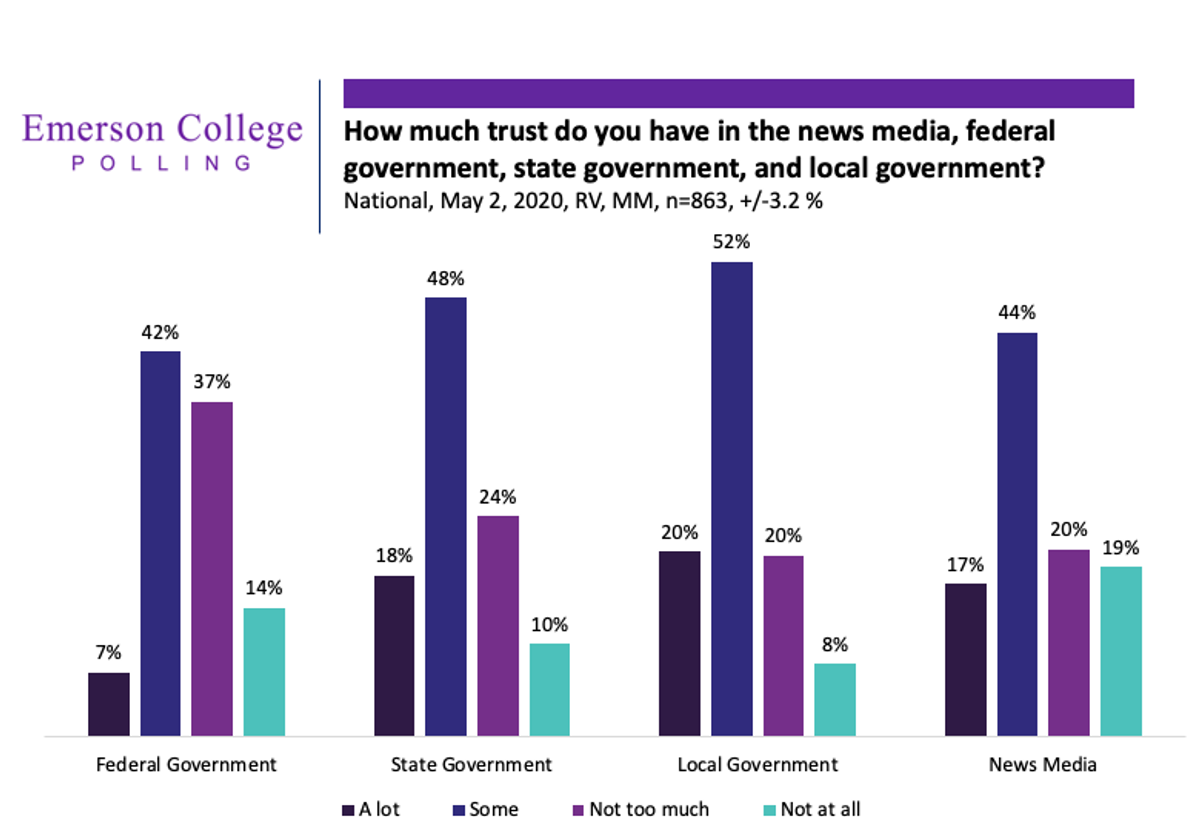
Respondents were asked their opinion about President Trump’s new multi-billion-dollar plan to make a coronavirus vaccine this fall called “Project Warp Speed”. The majority of respondents, 33%, want to see more facts before forming an opinion. Nineteen-percent (19%) of respondents support the plan because they believe we will not get back to normal life without a vaccine; 28% support the plan, but do not think it is possible to get a vaccine that fast. Six (6%) of respondents do not support it, because they believe it is a way to give money to drug companies; 11% do not support it, because they are not sure a vaccine can be developed. One percent (1%) do not support it because developing a vaccine is against their religion or faith.
When asked about taking a coronavirus vaccine, 29% said they would take it, 54% say they would follow their doctor’s advice, 4% say they would take it if their school or employee required it, and 12% say they would not take the vaccine under any circumstances.
Of the reasons not to take the vaccine, the biggest worry was the vaccine’s side effects. Of the respondents who claimed they would not take the vaccine under any circumstances, 92% say vaccine side effects are a reason they are unwilling to take the vaccine; 75% worry politicians are rushing the vaccine; 58% will not take the vaccine because they are at low risk of contracting the virus; 75% say they do not trust pharmaceutical companies, and 12% say their church or faith opposes vaccination.
More on 50th Kent State - Join us on Monday, May 4, 3 - 4 p.m
Zoom Event Info: https://emerson.zoom.us/j/93337596806?pwd=VzhUNVpEeU9NNmFaZ3JIb1dYNW9nUT09
Meeting ID: 933 3759 6806
email emersonpolling@emerson.edu for password
Dial in: +16465588656
Find your local number: https://emerson.zoom.us/u/aRDbMlVkO

